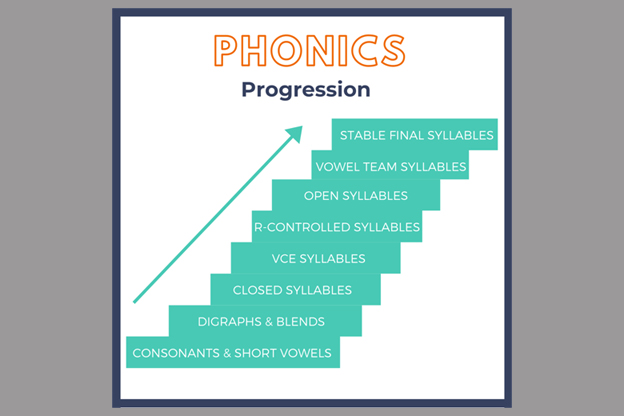

You say you want a revolution II
Readers here know that I have frequently quoted Professor George G. Hruby in my stories about the science of reading initiative at the Legislature, known there as the “Read Act.” Just for good order’s sake, here’s my last story on the subject, You say you want a revolution; it has links to the earlier stories in it. Professor Hruby is a co-author of a recent article in the Columbia University Teacher College journal that I have linked before, too.
Legislating Phonics: Settled Science or Political Polemics?
I struck up a correspondence with Professor Hruby, and he’s been very helpful to me in understanding the political landscape surrounding the current phonics convulsions (my term, not his, and this is just the latest) around the country. He sent me an email several days ago that I thought was really quotable, and I asked him if I could do that; he agreed. Here it is.
– o O o –
Beware of being deliberately distracted from the real issues here.
Evidence-based is not the issue. (It has been enshrined in Federal code for many years.)
Science is not the issue. (Like any human activity, it can be done well and responsibly, or less so.)
Science of Reading is not the issue (although as a marketing gimmick from publishing companies it is problematic).
The issue is out-of-state financial interests after your tax dollar falsely claiming that their products are “scientifically-proven” to work when there is no such evidence you could hang a hat on.
Another issue is that these phonics-centered curricula, while paying lip-service to vocabulary and comprehension, push sound-making-as-reading (recitation) over comprehension-of-texts (understanding) as the ultimate goal of literacy education. But the tests the children will be judged on are reading comprehension tests. Students require language comprehension ability as well as decoding skills such as phonics to do well on those tests. Phonics-intensive curricula sideline comprehension development, and are more likely to harm at-risk students and guarantee inter-generational low literacy, weak school achievement, and poor life success.
As I have noted elsewhere, science does not prove things true—it trades in probabilities. But more to the point, there is no evidence-based research on LETRS demonstrating it’s more effective than other approaches. So why mandate it? Allow it, but allow equally effective and possibly superior approaches, including approaches already being used and found suitable by the schools. Local control of the schools and parental preference should be maintained.
Finally, beware of digitally platformed, internet-driven instructional products. These are not really “solutions” for anyone but the hedge funds that own the companies that provide them. They not only deliver the instruction and tests. They potentially vacuum up untold amounts of data on their products’ use—key stroke by key stroke, pause by pause, eye glance by eye glance, facial expression recognition, pupil dilation, verbal and guttural responses, even, as we transition from passwords to touch ID, galvanic skin response. It may not yet have been operationalized, but that is the high-profit end game here. It is not only psychometric data from test results; potentially it would be behavioral, biometric, and psychological data. And to whom would the hedge funds sell this data? The highest bidder. And to what purpose? Whatever the bidder chose.
This is “taking away” a lot more than data. This is an enormous invasion of students and families’ privacy without so much as a permission slip or informed consent. And without much concern for the child, their futures, their families, their communities, or your state. It is an appropriation of local control of the schools, but also, soon, state control of the curriculum. Make no mistake: bills just like yours, right down to the taglines and key phrases, are being introduced and passed in every state house in the US, and just within the past two years. This is a de facto national curriculum. And who is behind it and to what purpose? I suggest more questions need to be asked and clearly answered before moving forward with this kind of legislation.
– o O o –
The current iteration of the “Read Act” is in Article 3 of the omnibus education finance bill in the House, HF2497.
Every time the Read Act bill mentions the required attributes of evidence-based curricula, vocabulary and comprehension are mentioned last, just as Professor Hruby predicted.
The Read Act deprives elected school boards a role in selecting literacy curricula, elevating the unelected Minnesota Department of Education and an institute at the University of Minnesota, CAREI, to that role, down to mandating the programs districts must buy and use, if the districts want to receive state grant funds. There are mandates for materials and teacher training, and money for them in 2024, but not after; what about the future? Another unfunded mandate to already strapped schools? Probably.
The omnibus bills will probably be heard on the floors of the two chambers of the Legislature soon. Perhaps we’ll have the brave new world that Rep. Heather Edelson envisions.

Edelson quote about the Read Act
Thanks for your feedback. If we like what you have to say, it may appear in a future post of reader reactions.

